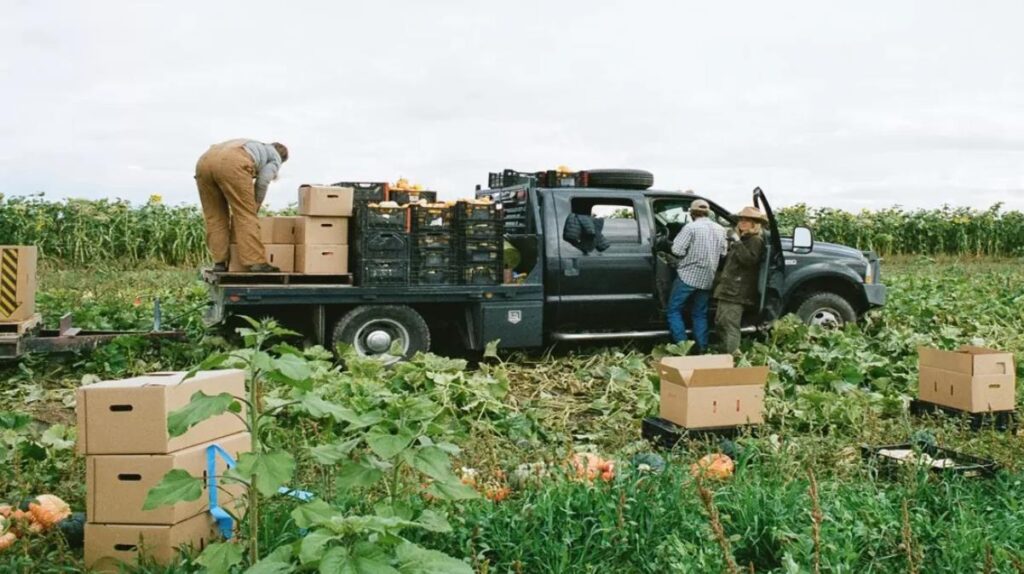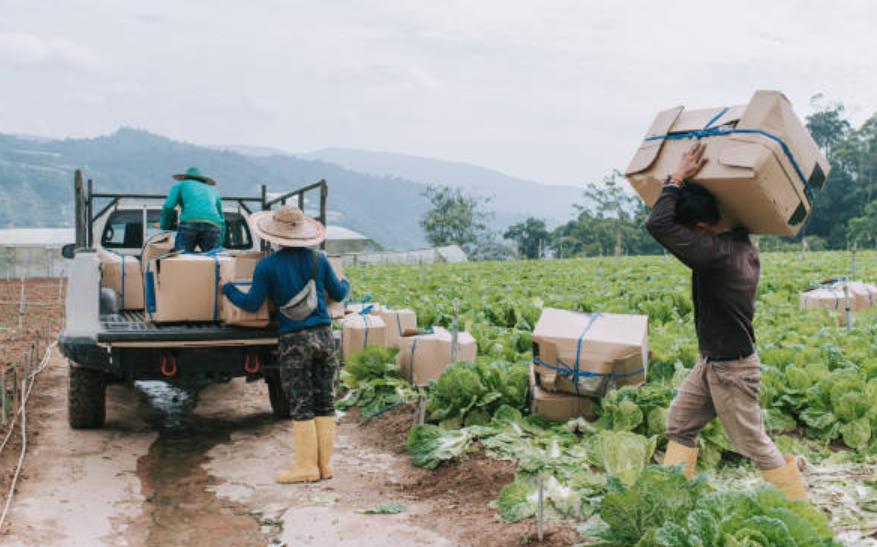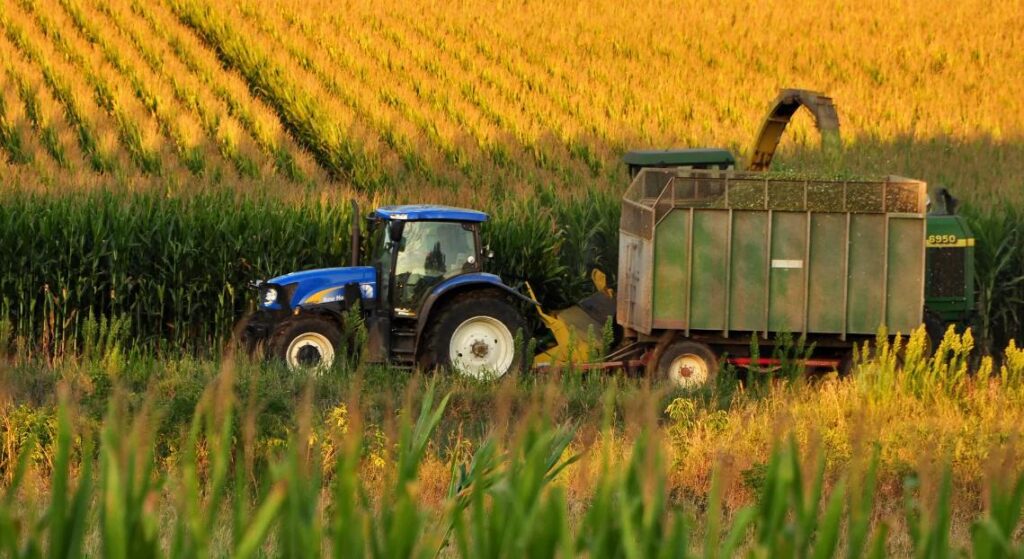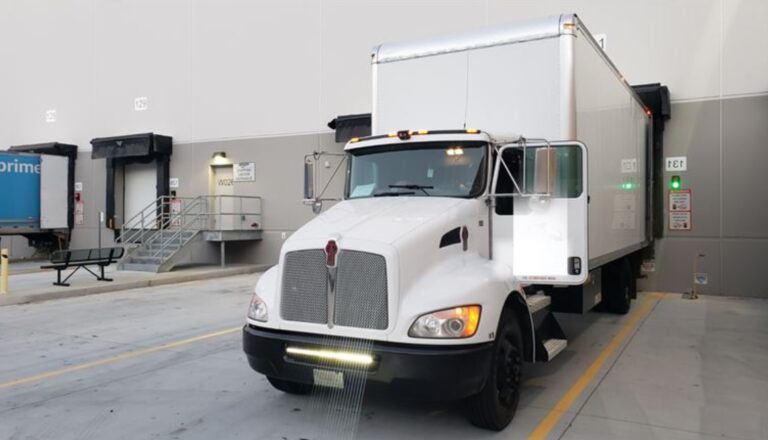Why Is Truck Farming Important? A Complete Breakdown
In this article, I will explain Why Is Truck Farming Important? Truck farming is an agricultural practice that has gained significant attention in recent years. It involves the large-scale cultivation of vegetables in regions that are particularly suited for their growth. The primary aim is to ship these vegetables to distant markets, making it an economically important sector.
Key Takeaways
- Truck Farming Defined: Large-scale cultivation of vegetables for distant markets.
- Regions: Specific areas optimized for vegetable growth.
- Scale: Extensive rather than intensive.
- Market Differentiation: Different from market gardening.
- Economic Importance: Significant for both local and global economies.
Why Is Truck Farming Important?
Truck farming is important because it plays a crucial role in supplying fresh vegetables to distant markets, thereby contributing to food security.
It also generates significant revenue for farmers and can be a vital part of local and national economies. Moreover, truck farming can offer employment opportunities and drive technological and sustainable advancements in agriculture.

Historical Background
Origin and Evolution
Truck farming has historical roots that trace back to various cultures and times. It was particularly popular among immigrant Italians and Japanese in San Joaquin County.
Economic Importance
The economic importance of truck farming cannot be overstated. It serves as a significant revenue source for both local and global economies.
Types of Vegetables Commonly Grown
Leafy Greens
Examples include lettuce, spinach, and kale.
Root Vegetables
Examples include carrots, beets, and radishes.
Fruits
Examples include tomatoes, cucumbers, and peppers.
Regions Suited for Truck Farming
When it comes to truck farming, the choice of region plays a critical role in determining the success of the venture.
Several factors contribute to making a region suitable for this type of large-scale vegetable farming aimed at distant markets. Let’s delve into the various aspects that make a region ideal for truck farming.

Climate Conditions
Temperature
The temperature of the region should be conducive to the growth of vegetables. Extreme temperatures, either too hot or too cold, can be detrimental to crop yield.
Rainfall
Adequate rainfall is essential for truck farming. However, excessive rainfall can lead to issues like soil erosion and waterlogging.
Seasonal Variations
Understanding the seasonal variations in climate can help in planning the crop cycles effectively.
Soil Quality
Soil Type
The type of soil available in the region is crucial. Loamy soil, which is a mixture of sand, silt, and clay, is often considered ideal for vegetable farming.
Soil pH
The pH level of the soil should be suitable for the specific vegetables you plan to grow. Most vegetables prefer slightly acidic to neutral soil.
Nutrient Content
The soil should be rich in essential nutrients like nitrogen, phosphorus, and potassium for optimal plant growth.
Proximity to Markets
Local Markets
Being close to local markets can be advantageous for quick and fresh deliveries, reducing the need for long-term storage.
Transportation Facilities
Easy access to good transportation facilities is essential for shipping produce to distant markets efficiently.
Government Policies and Support
Subsidies and Grants
Some regions offer subsidies and grants for agricultural practices, which can be beneficial for truck farmers.
Research and Development
Regions with strong agricultural research institutions can provide valuable insights and technological advancements for truck farming.
Challenges and Solutions in Truck Farming
Truck farming is a rewarding yet challenging agricultural practice. While it offers the potential for high returns, it also comes with its own set of challenges that can impact both yield and profitability. In this section, we will explore some of these challenges and discuss potential solutions to overcome them.

Labor Intensity
The Challenge
Truck farming can be labor-intensive, especially during peak seasons. The need for planting, tending, and harvesting can require a large workforce, which may not always be readily available.
The Solution
Investing in mechanized farming equipment can significantly reduce the labor requirement. Additionally, proper planning and scheduling can help in managing labor more efficiently.
Market Fluctuations
The Challenge
The prices of vegetables can be highly volatile, influenced by various factors such as weather conditions, demand, and supply. This can lead to financial instability for truck farmers.
The Solution
Diversifying the types of vegetables grown can act as a hedge against market fluctuations. Also, entering into long-term contracts with buyers can provide some level of financial security.
Environmental Impact
The Challenge
Conventional truck farming practices can have a negative impact on the environment, including soil degradation and excessive use of water and pesticides.
The Solution
Adopting sustainable farming practices such as crop rotation, organic farming, and efficient irrigation systems can mitigate environmental impact.
Pest and Disease Management
The Challenge
Pests and diseases can severely affect crop yield and quality, leading to financial losses.
The Solution
Integrated Pest Management (IPM) practices, which combine chemical and biological methods, can be effective in controlling pests and diseases. Regular monitoring and early intervention are key.
Transportation and Logistics
The Challenge
Transporting the produce to distant markets in a timely manner while maintaining its freshness can be challenging.
The Solution
Investing in cold storage and efficient transportation systems can help maintain the quality of the produce while it’s en route to markets.
Regulatory Challenges
The Challenge
Truck farmers often have to navigate a complex landscape of agricultural regulations and quality standards.
The Solution
Staying updated on local and national agricultural policies and adhering to quality standards can help in avoiding legal complications.
Financial Aspects of Truck Farming
The financial aspects of truck farming are a critical component that can make or break the success of this agricultural venture.
While truck farming can be a lucrative business, it also requires substantial investment and financial planning. In this section, we will delve into the various financial elements that are integral to truck farming.

Capital Requirements
Initial Investment
Starting a truck farming business requires a significant initial investment. This includes the cost of land, seeds, fertilizers, and farming equipment.
Working Capital
Apart from the initial investment, truck farmers also need working capital to cover day-to-day expenses such as labor, maintenance, and utilities.
Revenue Streams
Crop Sales
The primary source of revenue in truck farming is the sale of crops. The revenue generated can vary depending on the types of vegetables grown and the markets targeted.
Value-Added Products
Some truck farmers diversify their revenue streams by producing value-added products like pickles, sauces, or dried vegetables.
Profit Margins
Cost of Production
Understanding the cost of production per unit area can help in setting the right prices for the produce.
Market Prices
The profit margins are also influenced by the prevailing market prices, which can fluctuate due to various factors like seasonality and demand-supply dynamics.
Risk Management
Market Fluctuations
Truck farming is susceptible to market risks, including price volatility. Farmers need to have financial reserves or insurance to mitigate these risks.
Environmental Risks
Unpredictable environmental factors like droughts or floods can affect crop yield and, consequently, the financial stability of the farm.
Financial Planning and Budgeting
Short-term Planning
This involves planning for the immediate crop cycle, including estimating costs and expected revenue.
Long-term Planning
Long-term financial planning may involve scaling up the operations, diversifying crops, or even venturing into related businesses like livestock farming.
Government Support and Subsidies
Financial Aid
In some regions, governments offer subsidies and financial aid to promote agricultural practices, including truck farming.
Tax Benefits
Tax incentives may also be available for adopting sustainable or innovative farming practices.
Market Strategies
Local vs Distant Markets
There are generally two types of markets that truck farmers can target: local markets and distant markets. Local markets are generally safer and more stable, while distant markets can offer higher revenue but come with greater risks.
Market Research
Understanding market demand is crucial. The types of vegetables to be grown should align with what the market wants.
Risk Factors
Market Fluctuations
The truck farming business is subject to market risks, including price fluctuations and demand variability. Some years may bring in high revenue, while others could result in losses.
Environmental Risks
Factors like climate change, pests, and diseases can also pose risks to truck farming.
Best Practices for Beginners
Study and Experience
For those new to truck farming, a considerable amount of study and some level of experience are necessary for success.
Types of Truck Farming
Truck farming can be categorized into three types:
- A garden for home use.
- Local market supply.
- Distant market supply.
How Profitable is Truck Farming?
The profitability of truck farming is a subject of keen interest for both aspiring and established farmers. While the potential for high returns exists, it’s essential to understand that profitability is influenced by various factors such as scale, market conditions, and operational efficiency. Let’s explore the different elements that contribute to the profitability of truck farming.

Revenue Streams
Crop Sales
The primary source of income in truck farming is the sale of vegetables. High-demand crops can fetch good prices, especially when sold directly to consumers or specialty markets.
Value-Added Products
Creating value-added products like jams, pickles, or sauces from excess produce can provide an additional revenue stream and improve overall profitability.
Cost Factors
Operational Costs
These include the costs of seeds, fertilizers, labor, and equipment maintenance. Keeping operational costs low is key to increasing profitability.
Transportation Costs
The cost of transporting produce to markets, especially distant ones, can significantly impact profit margins.
Market Conditions
Demand and Supply
High demand and low supply for specific vegetables can lead to higher prices and increased profitability.
Seasonal Fluctuations
Certain vegetables fetch higher prices during off-seasons, contributing to increased profits.
Scale of Operation
Small-Scale vs Large-Scale
While small-scale operations may have lower overheads, large-scale truck farms can benefit from economies of scale, potentially leading to higher profits.
Risk Management
Market Risks
Price volatility in vegetable markets can impact profitability. Risk mitigation strategies like futures contracts can help stabilize income.
Environmental Risks
Unforeseen environmental factors like drought or pest infestations can adversely affect profitability. Insurance can serve as a financial cushion in such scenarios.
Efficiency and Innovation
Technological Adoption
Utilizing modern farming techniques and equipment can improve yields and reduce labor costs, thereby increasing profitability.
Sustainable Practices
Sustainable farming practices not only benefit the environment but can also attract a niche market willing to pay premium prices for sustainably grown produce.
Conclusion
In summary, truck farming is an extensive form of agriculture focused on the large-scale cultivation of vegetables for distant markets. It plays a vital role in the economy and has various challenges that need addressing for sustainable growth.
Top FAQ’s
How is truck farming different from conventional gardening?
Truck farming is less intensive than conventional gardening and often involves the use of raised beds.
Why is truck farming often associated with waterways?
The term is often mistakenly associated with railroad trucks, but it actually began near waterways, which were the primary means of transporting the produce.
What is the origin of the term “Truck Farming”?
The term “truck” in truck farming comes from the French word “troc,” which means to barter or exchange.

Welcome to the exhilarating world of Matt Rex, a professional car racer turned renowned vehicle enthusiast. Immerse yourself in his captivating blog as he shares heart-pounding adventures, expert reviews, and valuable insights on cars, trucks, jets, and more. Fuel your passion for speed and discover the beauty of vehicles through Matt’s engaging stories and meticulous expertise. Join the ever-growing community of enthusiasts who find inspiration and expert advice in Matt Rex’s blog—a digital hub where the thrill of speed meets the pursuit of knowledge.







